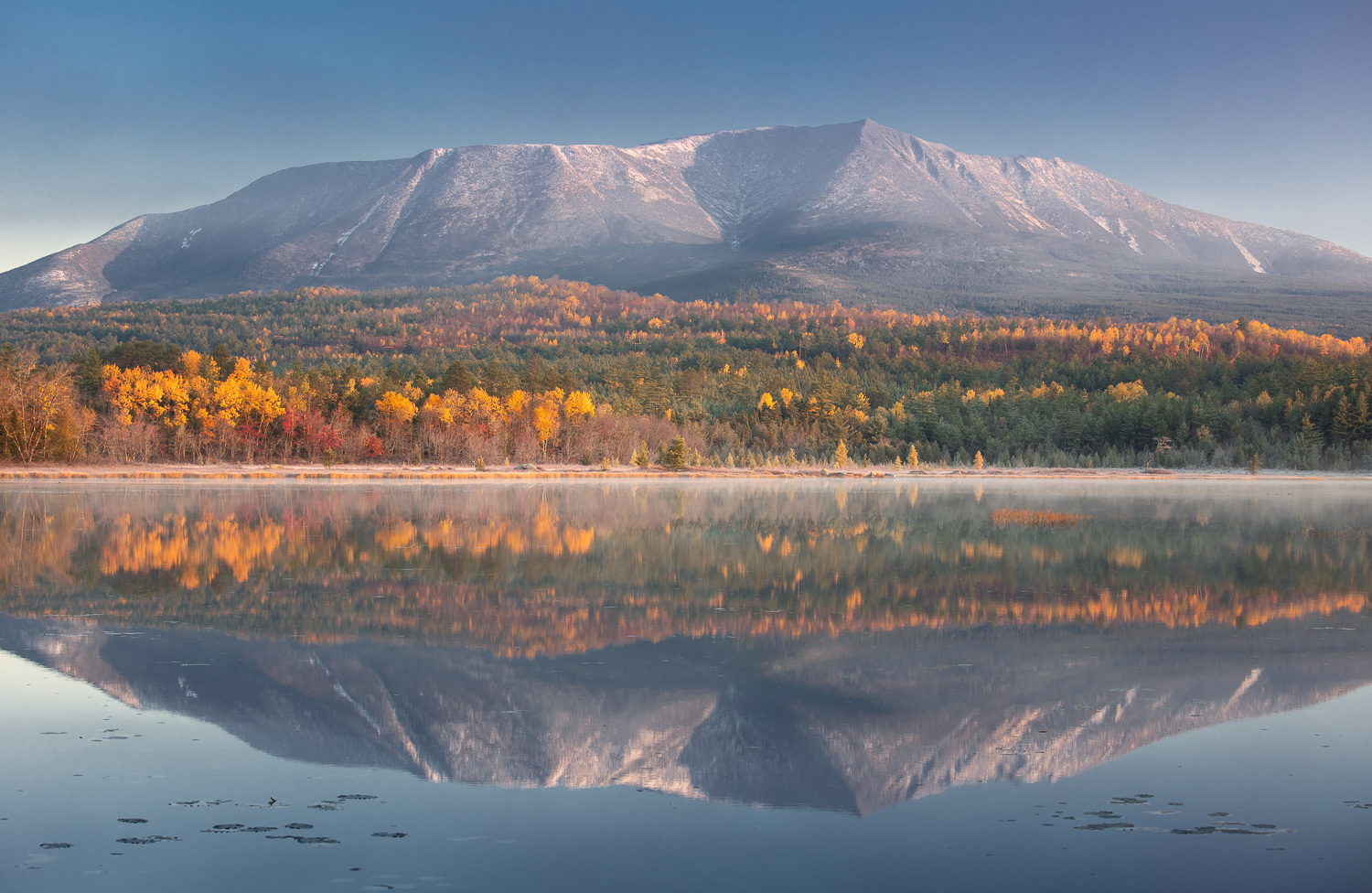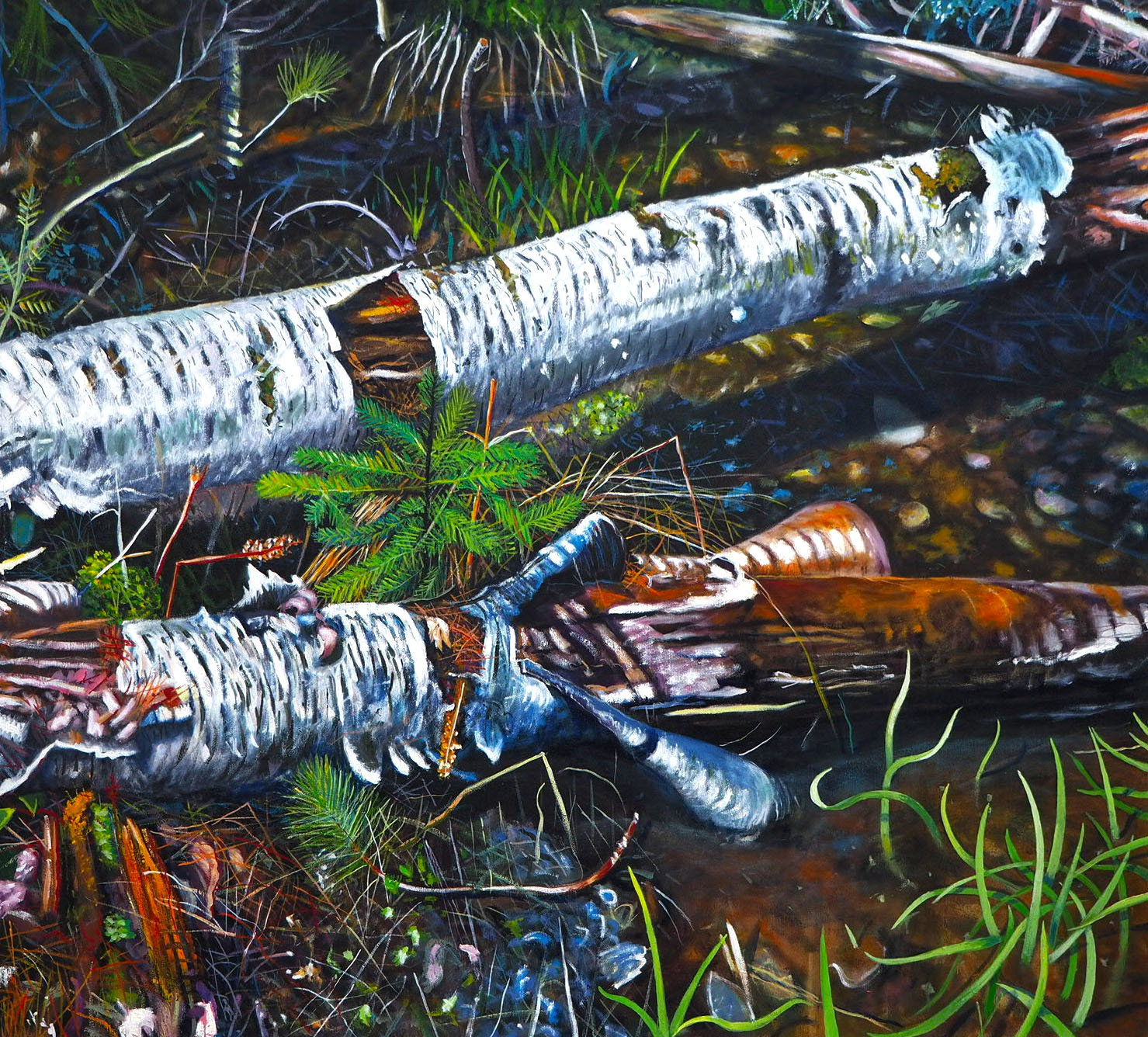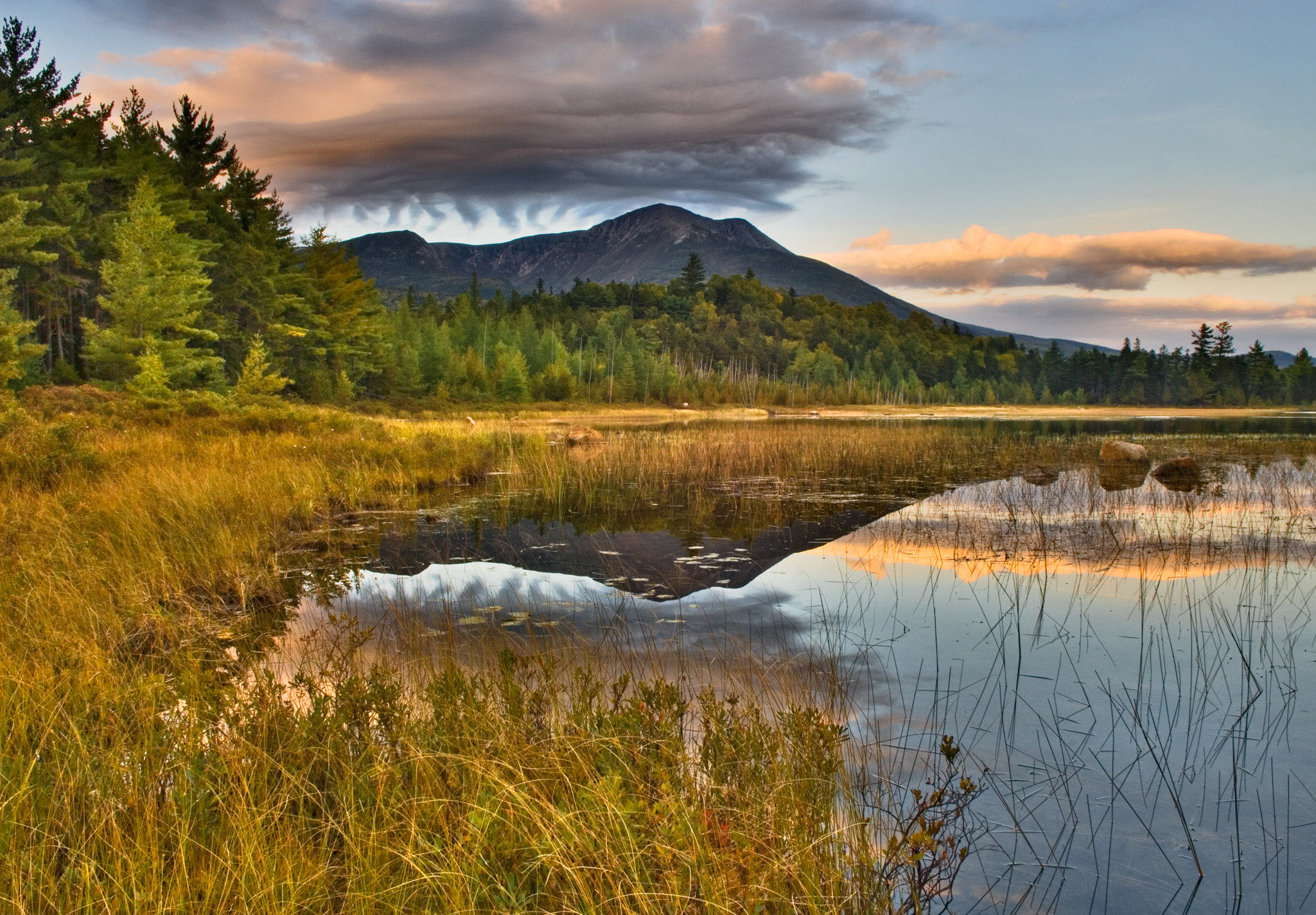Spire 2021 Issue
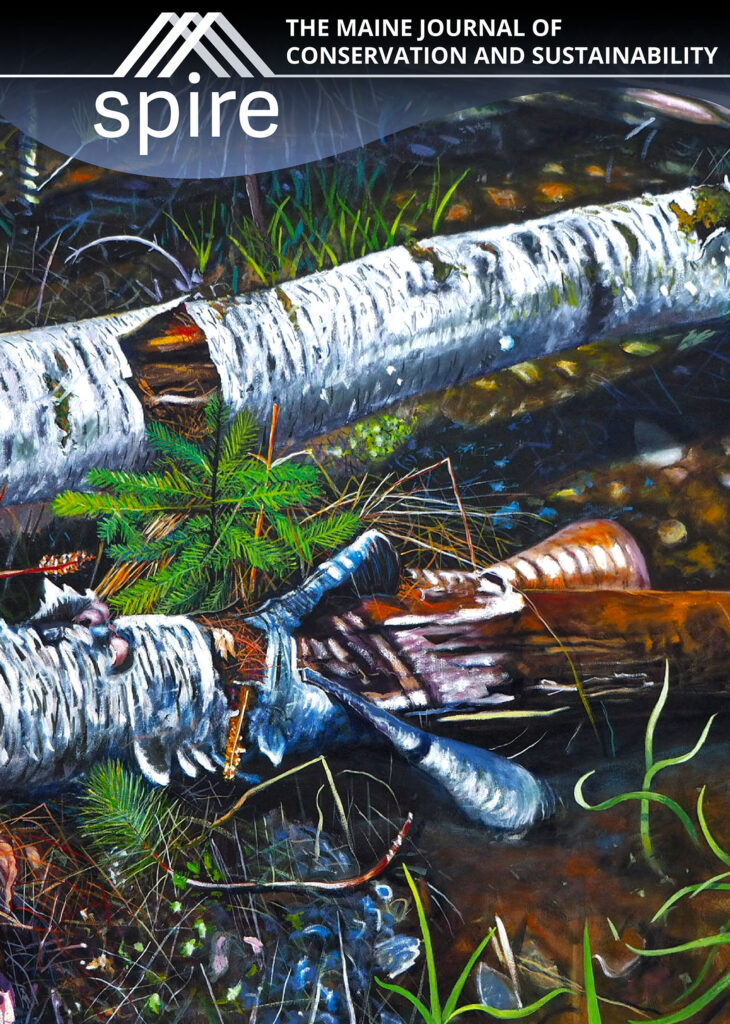
A Letter From the Editor
Rebecca Champagne
Welcome! I am so thrilled to present Spire’s fifth issue, the journal’s largest issue yet. It contains a variety of submissions, including art, poetry, photography, research, and personal stories. This collection of diverse content reflects Spire’s vision and mission to unite communities and to galvanize action for conservation and sustainability. Inside you will find original work such as a collection of paintings representing the fragile cycle of life, poetry that examines the threat climate change poses on icebreaking on the Penobscot River, and a reflection on what one individual learned while serving as a sustainability coordinator at a local university. Another author discusses how the Baby Boomer generation perceives climate change, and a team discusses the role of big data in sustainability science. I feel very blessed to have connected with so many people all across the state and the northeast and I’m proud to witness Spire’s continued growth…
Continue Reading
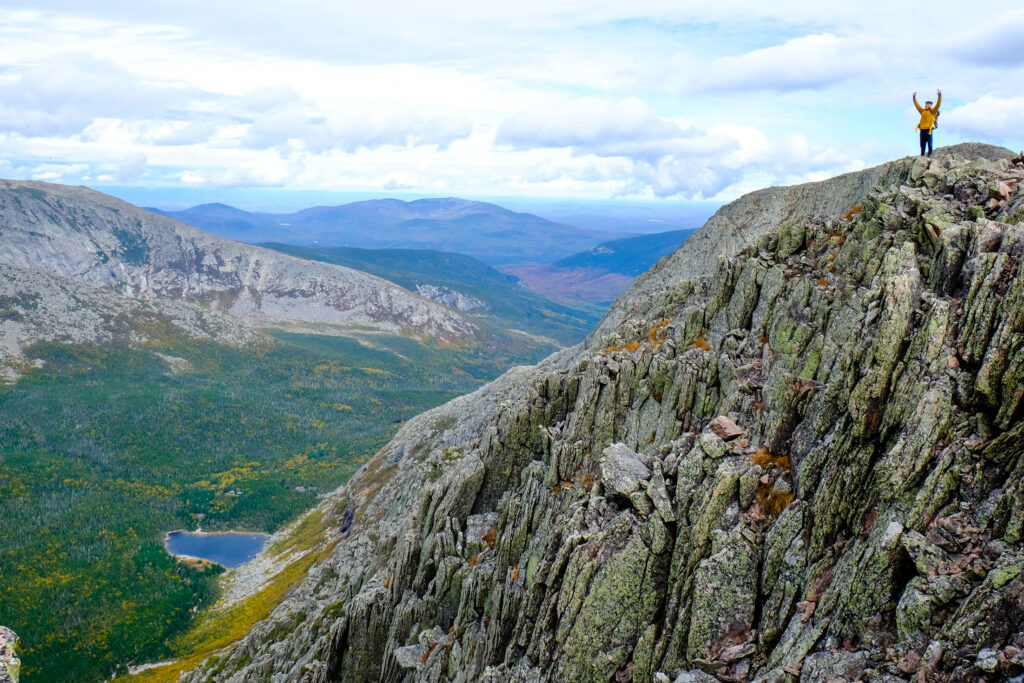
A New Model for Environmental Discourse
Elyse DeFranco
In an era filled with challenges for effective environmental communication and outreach, Spire: The Maine Journal of Conservation and Sustainability, offers an opportunity for solutions. An environmental journal that seeks to cross disciplinary boundaries and bridge the gap between academic researchers and the public community, it has successfully fostered a new type of platform for environmental discourse in the state of Maine. Since its founding in 2017, Spire has published a wide variety of works from researchers, writers, and artists on the themes of conservation and sustainability…
Continue Reading
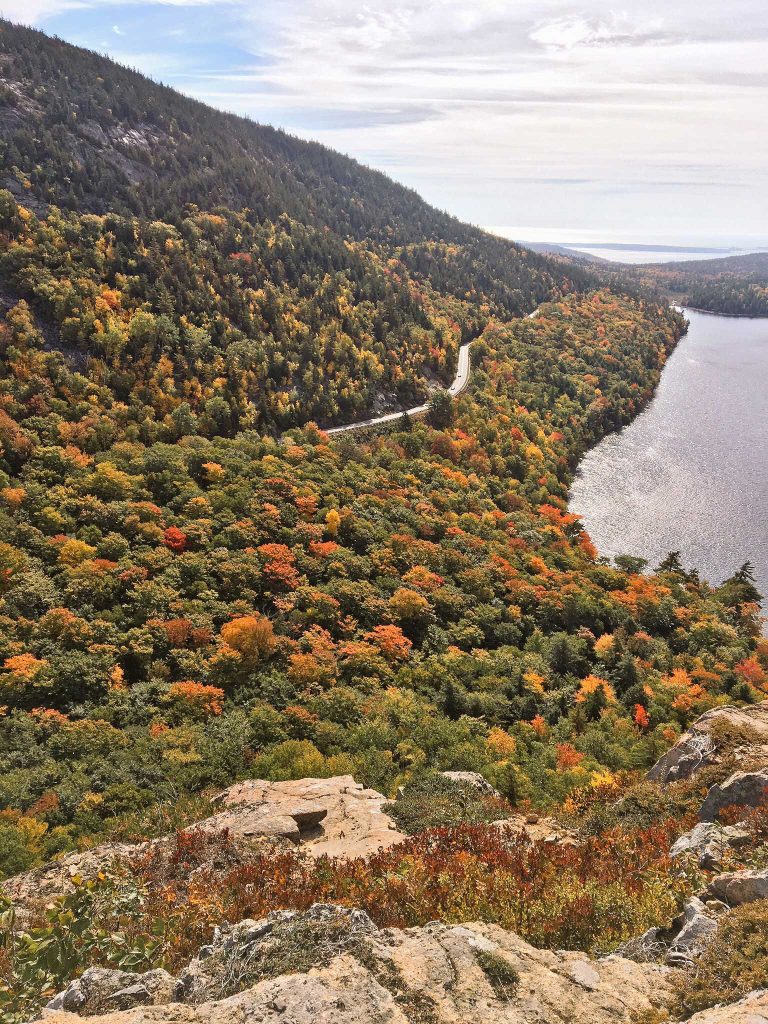
It’s Not Working Now
Andrew Miller
According to a recent study by Gallup, Inc., 56% of those 55 and older were concerned about global warming, compared to 70% of 18- to 34-year-olds. Only 55% of the older generation considered global warming to be human-induced, whereas 75% of young people did. Finally, 31% of those over 55 believed the news media understated the problem, compared to 48% of younger Americans…
Continue Reading
Ancestral Memory/Breath
Paloma Henriques

sitting on the seashore
of my mind’s edge
wondering at paranoia, fear, joy, sadness, contentment
and all the myriad waves
lapping against the coarse sand of my synapses
thoughts, like seals, wriggle
their blubbery shapes into my consciousness
marking a trail through my memory
the space between stimulus and response…
Continue Reading
A Collection of Poems: Isleboro by Ice, Last Ride of the Icebreakers
Matt Bernier

He opens the barn door on another
cold morning and discovers they’re
both restless, his horse’s eyelashes
fluttering at the sunrise across frozen
Belfast Bay, James worrying that
the ice’s thickness portends another
1816, another year without a summer,
when the crops failed…
Continue Reading
The Need for Unspoiled Places
Kevin Daley
By the time I was in my twenties, the town I grew up in had changed a lot; the creation of Route 495 drastically increased the area’s accessibility, and the population soared. The small pond where I saw my first Scarlet Tanager simply disappeared, and the woods surrounding it (with their massive white pines and maple trees) were replaced with houses and driveways and lawns. What I called “the high meadow,” an elevated spot with abandoned fruit trees, small deer herds, and huge hills created by fire ants, became the site of an exclusive condominium complex…
Continue Reading
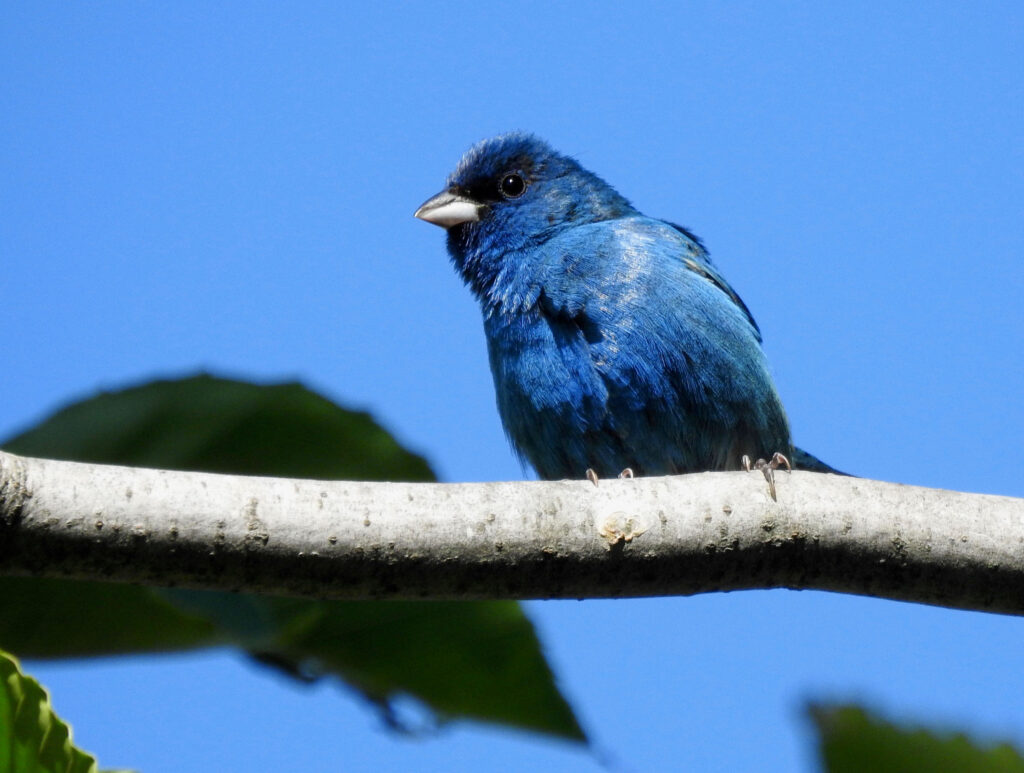
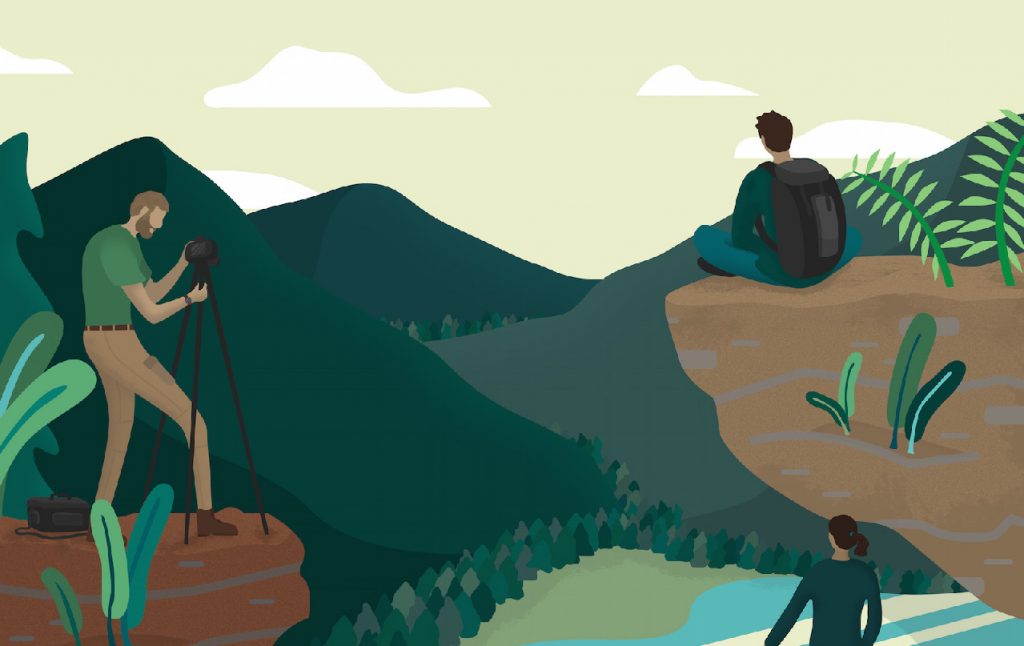
What I Learned as a University Sustainability Coordinator
Lucas Kellett
My journey into university sustainability was in many ways haphazard if not fortuitous, yet it is one of the most interesting professional and personal experiences I have ever had.
When I was hired, I had no formal training in how to be a sustainability coordinator. As I would soon find out, the first generation of coordinators often lacked formal training and upon entering their new university jobs, had to take quick stock and strategize for each unique institution of higher education. As a child of the 1980s, I was raised in the northern suburbs of Chicago on canned and frozen food and had almost no direct experience with gardening, composting, wood heat, or food insecurity – the very things that dominated my tenure in sustainability at UMF…
Continue Reading
A Collection of Poems: Ode to the Cold-Stunned Sea Turtle, Paradise
Vivian Eyre

Come closer, the sea said,
in this kingdom of slate-gray waves.
I had slipped far down into myself.
As I look down at the cobbles of feldspar
and quartz, my fears rise. If only I
had paws or leaning staff to walk across
what doesn’t give. A rush of wind
through my coat, awakens that old urge
to turn away…
Continue Reading
A Collection of Poems: Creeper, Brown; Outside; Guilt Trip
Lucia Owen

In her basement this Saturday
the countrywoman, retired, starts to collect stuff
to take to the dump. Somehow she has never
bought ‘transfer station’ and wonders
where it’s all transferred to and has a few ideas
but won’t ask for fear they’ll tell her and
she’ll turn inside-out with guilt…
Continue Reading
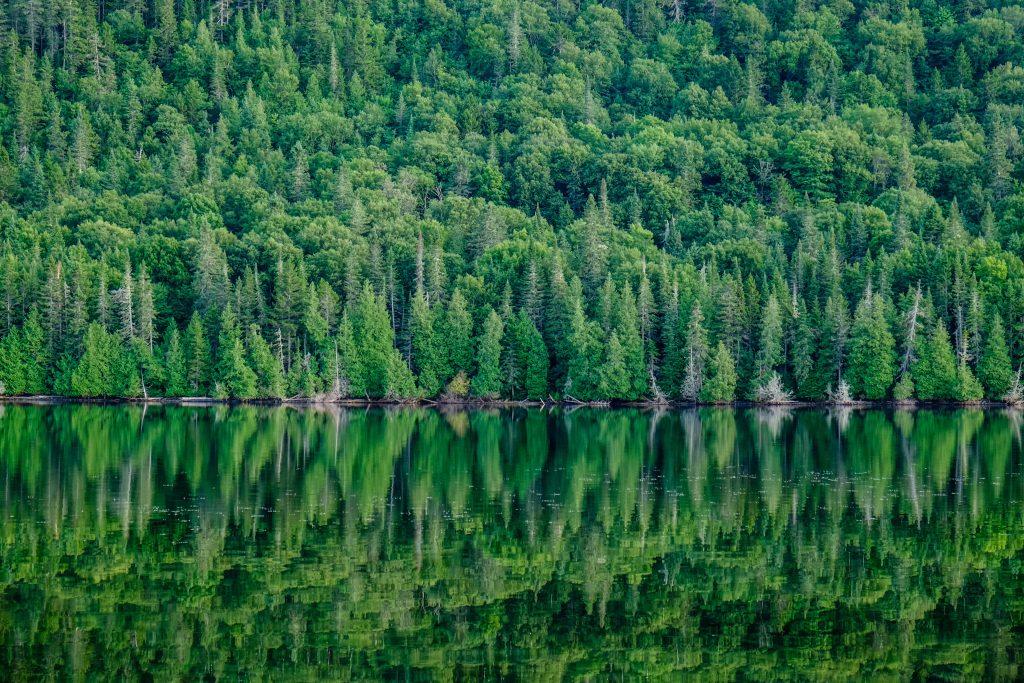
Uncovering Big Data Bias in Sustainability Science
Nick Record and Lourdes Vera
As is often the case, rapid deployment of technology is justified for the potential advances without due consideration of the potential pitfalls. This is why Mary Shelley’s Frankenstein (1818) should be required reading for science degrees. Big data and learning algorithms are already deeply embedded into our everyday lives, and much like with Dr. Frankenstein’s creation, we are now seeing the unintended consequences unfold before our eyes…
Continue Reading
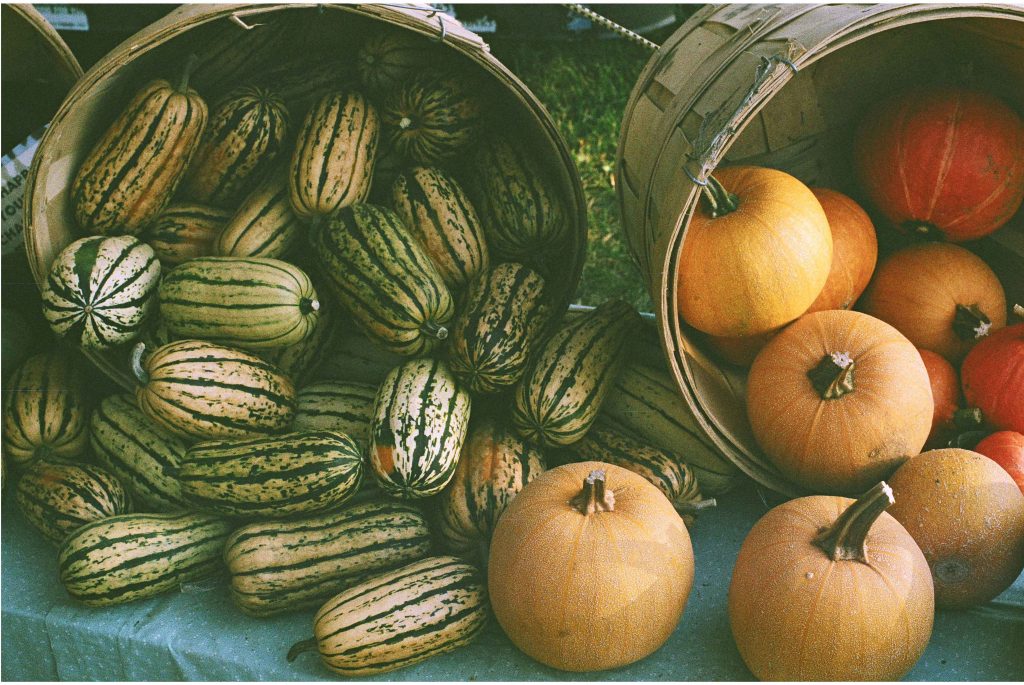
Burdening Food Banks with the Charity of Waste
Jocelyn Meyer
This paper examines the structural issues represented by the Farmers to Families Food Box (FFFB) initiative rolled out by the U.S. government in response to rising levels of food insecurity during the COVID-19 pandemic. It addresses some of the concerns brought about in a letter written by the U.S. House of Representatives Committee on Agriculture’s Subcommittee on Nutrition, Oversight, and Departmental Operations revealing the inefficacy and problems associated with the government and agribusiness’ overdependence on food charity to address the structural issue of hunger. I argue that the normalized outlook and treatment of food charity as “win-win-win” scenarios by these actors are ultimately ineffective, perpetuating existing food system injustices that disproportionately burden low-income communities of color…
Continue Reading
Observations at Boot Head Preserve in January
Emily Guirl
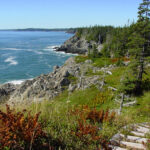
The surf is audible from the trail head, also the erratic hooting of an offshore buoy. I stumble over raised roots, turn right at the fork.
The trees part at the first lookout. The water below is high and white, moving in all directions as it fills the tight cove at the base of the cliff. Clouds in tones of gray are broad and dark over Grand Manan across the channel, light and breaking overhead. Sun glows on the bridge of my nose…
Continue Reading
A Collection of Poems: Mother Maine, Resilience, Between Disciplines
Michelle de Leon
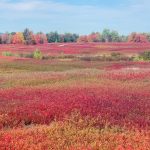
Maine is a place
where I’m leaning into a state of tension.
Clouds flood me as I navigate
where is home…
Continue Reading
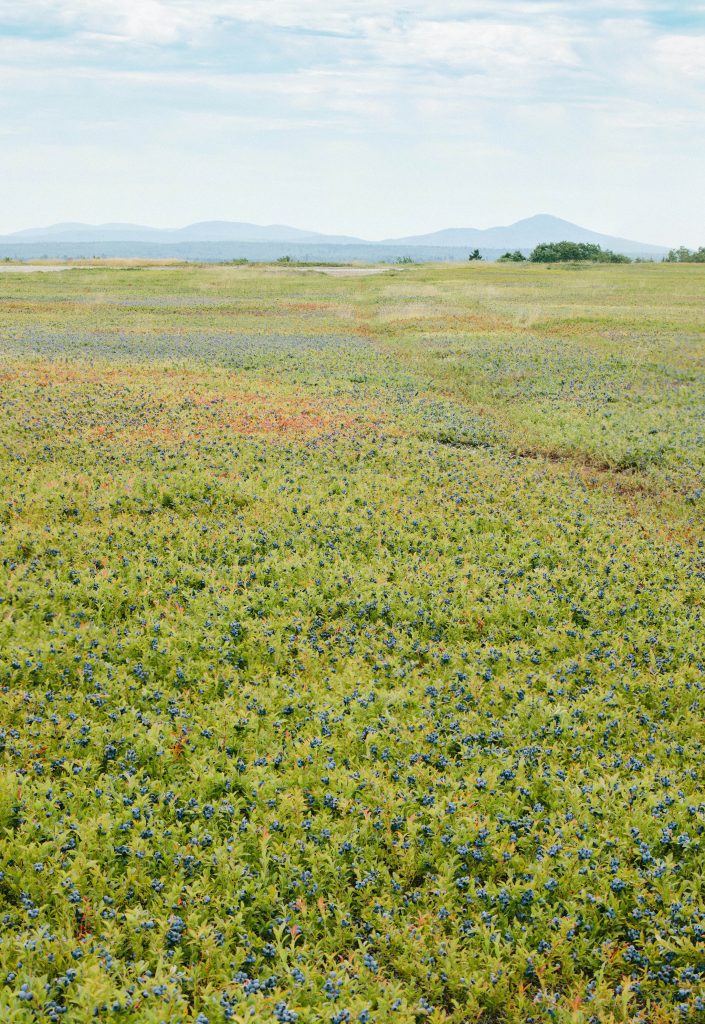
Comparing Climate Change Communications Across Maine Wild Blueberry, Apple, and Potato Growing Communities
Sarah Marcotte
In the face of changing climate, adaptations to agricultural systems are necessary to ensure the resilience of our food systems. Despite the increasing urgency for these measures, multiple barriers exist which prevent growers from adopting adaptive practices. Political tensions and attitudes of skepticism amongst growers have created challenges in communicating climate information, which has prompted research into methods of communication that more effectively promote understanding between growers and educational organizations. The focus of this study was to determine whether differences in communication methods by University of Maine Cooperative Extension to Maine growers could, in part, account for an increased level of concern about climate change amongst Maine wild blueberry and apple growers as compared to potato growers…
Continue Reading
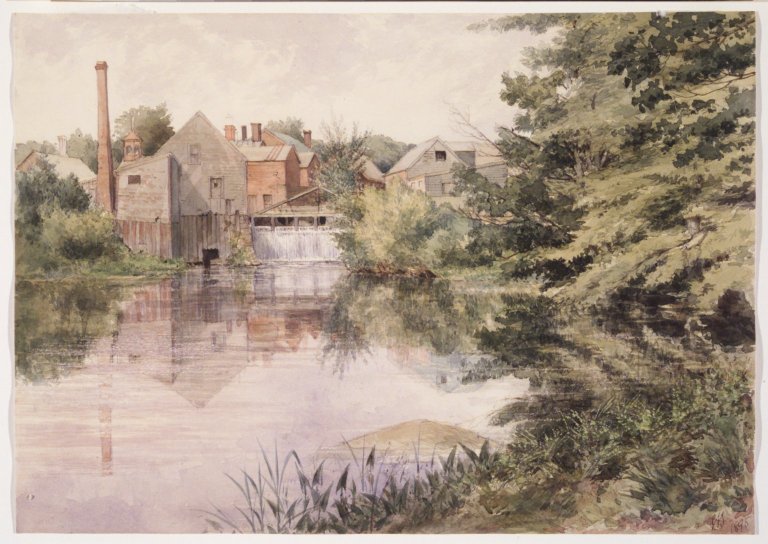
Honoring Our History: Restoration on the Megunticook River
Hallie Arno
The deluge of water cascading under stores and over walls in Camden is archetypical coastal Maine—this iconic river is in postcards, pictures, and magazines. The existence of the dam that creates the river as we know it, and the history of the mills it emblemizes, insinuates the history of prosperity in the picturesque little tourist town. The sentiment of “Honor our History” billows on bright vinyl banners and falls from local lips. Upon closer inspection, only the history of the last couple of hundred years is being honored. Pollution, development, and fish barriers relegate the natural history to small, preserved parcels on the outskirts of town, and any trace that humans had lived in the area before the dams is virtually nonexistent save for the river’s name itself. Still, the Megunticook is universally adored—It’s hard for anyone to avoid feeling protective over the beauty, man-made or natural, of the places you, your parents, and your grandparents grew up in…
Continue Reading


